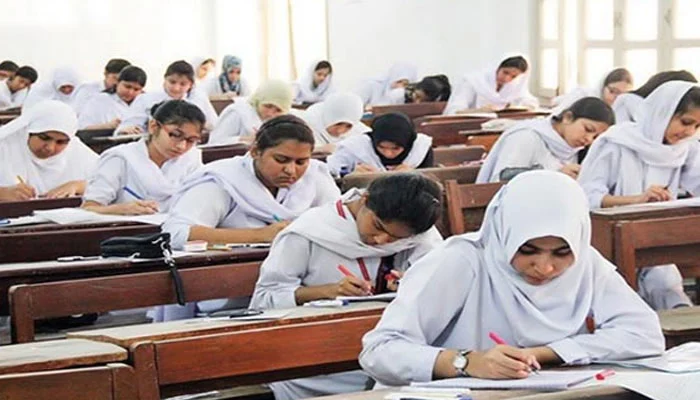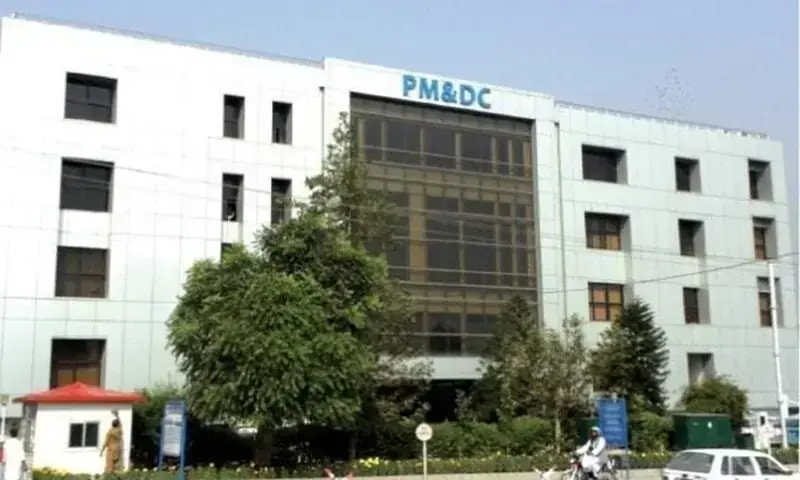As the province gets ready to introduce a cutting-edge smart exam system for Matric and Intermediate students, Sindh is embarking on a new era of educational reform. With the use of cutting edge e-marking and QR code technology this historic shift is expected to change how exams are marked. Concerns regarding the examination process efficiency, fairness and transparency have been voiced for years by students, parents and educators.
Now, with this new initiative Sindh is set to address these challenges and build a modern technology driven future for millions of learners. The official launch of the digital e-marking system will take place on December 4 in Karachi marking a milestone for Sindh but also for Pakistan’s wider education sector.
The launch will be attended by senior members of the Inter Board Committee of Chairmen (IBCC) as well as the heads of 29 educational boards. Their presence demonstrates the significance of this digital transformation on a national level. Also suggests that similar reforms will probably spread throughout the nation in the years to come.
Federal Collaboration and Cutting-Edge Software Support
This transformation is backed by a strong partnership with the Federal Board of Intermediate and Secondary Education (FBISE). The Federal Board will supply Sindh’s boards with specialized software designed to support the entire smart exam system. This includes tools for digital e-marking, high speed scanning, barcoding, QR code generation and updated marking criteria that align with international digital assessment standards.
The federal government provision of this technology shows a shared commitment to enhancing the exam experience for students across Pakistan. It also shows an understanding that in order to continue being reliable, equitable and effective contemporary educational systems must change. With software designed to eliminate loopholes and streamline processes, the new digital approach will ensure greater accuracy and reliability than ever before.
To support the transition, the Sindh government has established a high-level oversight committee titled “Digitization and Technology Implementation in Education Boards.” The notification was issued by Abbas Baloch, Secretary of the Department of Universities and Boards. It affirming the government’s serious commitment to long-term innovation within the education sector.
A High-Level Committee to Lead the Digital Transformation
The committee has been formed to manage every stage of the new system rollout. Planning, instruction, execution, quality assurance, and assessment are all included in this. By the 2026 exam cycle, its long-term objective is to guarantee that the system is completely operational across all boards. To guarantee wide representation important stakeholders from different educational boards have been included:
- Board of Intermediate Education Karachi (BIEK)
- Board of Intermediate and Secondary Education Shaheed Benazirabad (BISESBA)
- Board of Intermediate and Secondary Education Sukkur (BISES)
The convener Fakir Muhammad Lakho the chairman of the Karachi Intermediate Board. It is anticipated that his leadership will be crucial to the reform’s prompt and effective implementation.
While speaking to The Express Tribune Lakho emphasized the efforts made to secure federal support. He explained that provincial officials convinced the federal government that investing in e-marking is as important as funding higher education scholarships.
The federal government agreed that building a strong foundation at the Matric and Intermediate levels is essential for producing skilled and furthermore capable graduates in the future. Moreover, Lakho described this as an investment in fairness, transparency and improved educational standards.
A Phased Rollout Starting with Pre-Medical and Pre-Engineering in 2026
The smart exam system will be introduced in stages ensuring that boards, teachers and students can gradually adapt to the new procedures. Additionally, the first phase will begin with the 2026 annual Intermediate exams specifically targeting the pre-medical and pre-engineering groups. Above all, these streams often carry the highest academic pressure and competition making them well suited for pilot implementation.
Every exam paper in the new system will include a unique QR code, allowing seamless tracking from start to finish. After students complete their exams the answer scripts will be scanned and converted into digital files. These digital copies will then be distributed among examiners for marking through the e-marking platform.
One of the most innovative elements of this reform is segmented marking. Instead of a single teacher evaluating a full exam paper different teachers will be responsible for marking different sections or questions. This ensures no examiner has access to a student complete answer script.
Segmented marking has been shown internationally to improve accuracy, reduce bias and eliminate the risk of manipulated results. It also allows experts in specific topics to mark relevant questions, improving overall quality and fairness.
Key Benefits of the New Smart Exam System
The introduction of QR code tracking and e-marking will bring major improvements to Sindh’s examination system by making the entire marking process transparent, accurate, secure, and free from bias. With segmented evaluation, reduced human error, and strong fraud protection, this digital shift sets a new standard for fairness and reliability while aligning with global trends in modern assessment.
- Full transparency through traceable marking
- Higher accuracy with reduced examiner fatigue
- Prevention of biased or uneven marking
- Strong fraud protection using QR codes and barcoding
- A modern, fair, and reliable digital exam system
A Comprehensive Digital Ecosystem for the Future
The committee’s responsibility does not end with e-marking. It also aims to introduce a fully integrated digital ecosystem across all educational boards. Furthermore, this includes online student enrollment, digital result processing and electronic certificate verification.
These systems will help reduce administrative delays, minimize errors and make student records more accessible and although verifiable. Dr. Ghulam Ali Mallah, Executive Director of the IBCC confirmed that training for Sindh educational boards will begin immediately. However, dedicated teams will travel to Islamabad next week to undergo specialized digital training.
Once the training is complete the IBCC will provide the required software and technical support to ensure a smooth start to the digitization journey. By taking these actions Sindh is modernizing exam protocols and getting ready for a more extensive digital revolution. Moreover, Sindh is modernizing exam protocols and getting ready for a more extensive digital transformation with these actions.
One of the most significant changes to the provincial examination system in decades is this. By utilizing contemporary technology, Sindh hopes to rebuild public confidence. Also get rid of inefficiencies and guarantee that each student gets a fair and accurate evaluation.
Parhlo Pakistan: Empowering Students with Trusted Educational Resources
Parhlo Pakistan provides authentic resources, exam updates and student friendly articles that simplify complex academic news. The website actively helps learners across Pakistan stay informed about new reforms like the smart exam system and ensures that students and educators always have access to accurate guidance during major educational transitions.
Conclusion: A Bold Step Toward a Smarter and Fairer Exam System
The launch of Sindh new smart exam system marks a defining moment in the province’s educational history. With e-marking, QR code tracking and segmented marking, Sindh is adopting global best practices that promise transparency, consistency and fairness.
This digital initiative ensures that students will be evaluated accurately, securely and without bias. By investing in technology, training and system wide reform Sindh is taking a strong step toward building a modern and trustworthy examination framework for future generations.
More than just an improvement Sindh digital transformation of the Matric and Inter exams reflects a dedication to efficiency, equity and academic excellence. The entire education community is optimistic that this new system will result in long lasting improvements. Hence, It serve as a potent model for other provinces throughout Pakistan as the 2026 rollout draws near.




